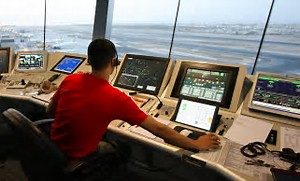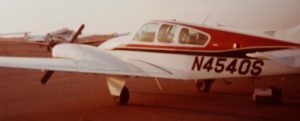The Atlanta Air Traffic Control Center had handed the Beech Baron off to the Memphis Center and now Memphis Center was making the last hand-off, to Houston.
A crisp voice on the speaker told my brother, who was piloting the plane, “40 Sugar, contact Houston Center on one two one point twenty-five, good morning.”
Dave scanned his gauges, stopping when he read the fuel gauge.
He had been flying for four hours and 30 minutes. He had 45 minutes of fuel left with about 100 miles to go. He could do it.

“Houston center, this is 40 Sugar level at 10, in bound to Hobby.”
And then came the embarrassing reply:
“You are still with Memphis Center, sir. Contact Houston Center on one two one point twenty-five.”
Dave had been awake for 22 hours. He had forgotten to change the radio frequency.
Fifteen minutes later Houston control directed him to descend and maintain 4,000 feet, the first step in the landing procedure.
“Uh…Houston, we would like to maintain ten thousand as long as possible. We are fuel critical and would like to have a steeper decent that usual.”
“40 sugar, are you declaring an emergency?”
That is the question no pilot wants to hear.
A “yes” to that question can bring incredible assets to bear on the problem and, usually, results in a safe resolution. At the same time it brings into sharp focus the question of who did what to cause the problem.
“No sir, we are not declaring an emergency,” Dave said. “We would just like to hold on to this altitude a little longer if we can.”
In another 15 minutes, the flight was over. They were down, safe. They had made it to Houston with about five gallons of fuel to spare.
Continued tomorrow.
